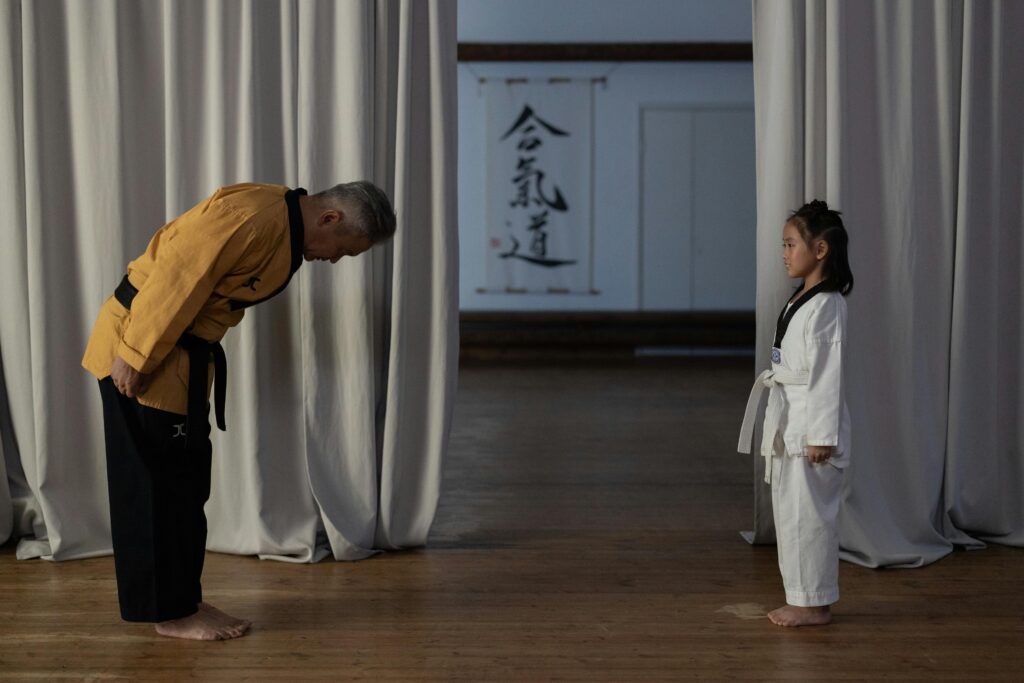It’s easy to overlook the quiet virtues that shape who we are. While grand acts of heroism or public recognition often get the spotlight, saintly qualities are usually woven into daily life in subtle ways. These traits may not earn applause, but they carry incredible value for personal growth and for those around us. Interestingly, many of these qualities have been part of human character since ancient times, celebrated across cultures and spiritual traditions. What follows are ten saintly traits that may already be within you, though you might rarely notice or acknowledge them.
1. Patience in Small Moments

Patience isn’t just about enduring long waits; it often shows in small, everyday pauses. When you listen without interrupting, wait calmly in line, or allow someone the time they need to gather their words, you reveal a deep saintly trait. This virtue has been admired for centuries, especially in monastic traditions where patience was seen as a form of strength. While you may not credit yourself for it, every time you resist the urge to rush or complain, you’re exercising a quiet discipline that benefits both you and others.
2. Compassion Without Recognition

Compassion often goes unnoticed when it comes in gentle, everyday gestures. It may appear when you comfort a friend, show kindness to a stranger, or lend a listening ear without judgment. Spiritual teachings across time, from early Christianity to Eastern philosophies, highlight compassion as a reflection of divine love. You don’t always recognize it because it feels natural, almost second nature. Yet this overlooked capacity to care deeply and genuinely is a saintly quality that enriches not only others’ lives but also your own.
3. Forgiveness That Heals

Forgiveness can be as small as letting go of a harsh comment or as large as reconciling with someone who hurt you deeply. Many overlook their own ability to forgive because it often happens quietly within the heart, with no grand display. In early religious traditions, forgiveness was seen as a bridge to peace, a way of aligning with higher ideals. Each time you release resentment, even in minor conflicts, you practice a saintly trait that mends not just relationships but also your own sense of inner balance.
4. Generosity Beyond Material Giving

Generosity isn’t only about donating money or gifts; it also lives in sharing your time, offering encouragement, or giving space for others to shine. You may not notice this trait in yourself because it blends seamlessly with everyday living. Historically, acts of generosity have been honored as expressions of spiritual abundance, reflecting a belief that giving enriches both giver and receiver. Whenever you willingly extend something of yourself, be it attention, support, or understanding, you quietly embody a saintly spirit that uplifts others.
5. Humility in Daily Life

Humility is not self-deprecation; rather, it is the quiet strength of not needing to boast or seek constant validation. This trait often slips past unnoticed because it doesn’t clamor for attention. Early saints and sages described humility as the gateway to wisdom, allowing one to remain grounded amidst praise or success. If you find yourself content to let others shine, or if you choose to keep your good deeds private, you are exercising a saintly quality that gives depth and grace to your character without even realizing it.
6. Endurance Through Quiet Trials

Everyone faces challenges, yet the way you endure them often reveals more than you see. Saintly endurance isn’t about dramatic sacrifices, but rather about persisting with dignity through struggles, whether personal, financial, or emotional. Ancient writings describe endurance as a sign of resilience rooted in hope. You may not recognize your strength because it feels like survival rather than heroism, but the ability to keep moving forward without bitterness shows a hidden saintly power that inspires others even when unspoken.
7. Gratitude That Softens the Heart

Gratitude is often expressed in small acknowledgments, thanking someone for their help, appreciating nature’s beauty, or recognizing blessings in the midst of difficulties. Because it feels natural, you may overlook the saintliness in it. Yet throughout history, gratitude has been a spiritual practice, grounding people in humility and joy. Every time you choose to focus on what you have rather than what you lack, you embody a quiet but powerful virtue. This unassuming practice not only uplifts you but also influences those around you.
8. Honesty in Subtle Choices

Honesty is more than telling the truth in big moments; it is reflected in your small decisions each day. Whether you admit a mistake, return extra change, or remain truthful in difficult conversations, you practice a saintly quality. Historically, honesty was seen as a reflection of integrity, an alignment of the inner self with outward actions. Because honesty is often habitual, you may not realize its depth in your life. Yet each act of sincerity strengthens trust and reflects a timeless trait of moral beauty.
9. Hope That Endures in Darkness

Hope is often unrecognized because it thrives quietly in your thoughts. It shows when you believe things will improve, encourage others despite setbacks, or hold onto faith in uncertain times. Saints and spiritual teachers across cultures celebrated hope as a light guiding humanity through hardship. You may not notice your own hopefulness because it feels like an instinct rather than a choice. Yet every time you nurture a vision for better days, you embody a saintly strength that sustains both yourself and those around you.
10. Love That Extends Beyond Words

Love often shines in subtle actions, helping without being asked, showing affection in small gestures, or simply being present. Spiritual traditions have long regarded love as the highest of virtues, binding humanity together. Because love often feels natural, you might not see it as extraordinary. Yet each quiet act of love, whether for family, friends, or strangers, reveals a saintly trait within you. When you give freely, without expecting in return, you reflect a divine quality that elevates both your life and the lives of others.
Comments